It’s been 24 years since Danny Roberts was picked to live in a house and had his life taped as part of MTV’s groundbreaking reality series The Real World.
Roberts was part of the show’s ninth season, which was set in New Orleans and aired over 23 weeks way back in 2000 during the early days of reality television.
A recent University of Georgia graduate, he was 22 at the time and saw the MTV opportunity as a way to fully come out as a gay man.
How about we take this to the next level?
Subscribe to our newsletter for a refreshing cocktail (or mocktail) of LGBTQ+ entertainment and pop culture, served up with a side of eye-candy.
With his wholesome good looks and laid-back demeanor, queer audiences quickly found themselves clamoring on his every word as there were so few depictions of a young adult gay man living openly and honestly on television at the time.
His storyline also came with added real-life drama as he had recently started a relationship with an Army captain, which thrusted them into the midst of the military’s controversial “Don’t Ask, Don’t Tell” policy. During the show’s run, producers blurred Roberts’ boyfriend’s face to keep his identity anonymous for fear of being discharged.
After the series ended, Roberts became the face of gay rights for a generation and traveled the country speaking at schools and panels on various LGBTQ+ topics. He also indulged in his newfound celebrity with small roles on Dawson’s Creek, the Logo series DTLA and competing on MTV’s The Challenge.
Following his intense brush with fame, Roberts has since carved out a more peaceful life living in a small, rural New England town, working for start-up tech firms and raising his beautiful eight-year-old daughter.
However, in 2022 he cautiously dipped his toes back into the reality TV insanity by agreeing to reunite with his Real World: New Orleans cast on the spinoff series The Real World Homecoming: New Orleans.
While that experience turned out to be cathartic, it also had its downside as some important conversations were left on the editing room floor.
Now 46 and a doting father in a long-term relationship, Roberts is currently helping combat the rise of anti-gay book bans and legislation by working with the educational organization History UnErased, the nation’s premier provider of K-12 LGBTQ-inclusive and intersectional US history curriculum.
Queerty had an opportunity chat with Roberts about the important work he’s doing with History UnErased to supplement mainstream courses and improve the history, civics, and social studies education all students receive. In our conversation, he also reflected on his time on The Real World, being a role model for Gen X and millennial queers, what he wished viewers got to see on Homecoming, and revealed why he’s not completely ruling out a return to reality TV.
Here’s what he had to say…
QUEERTY: With the rise in book bans and “Don’t Say Gay” legislation, tell us a little about the vital work History UnErased does?
ROBERTS: It’s the nation’s only first and only LGBTQ inclusive history curriculum. It’s for K through 12 and it is designed to integrate into existing mainstream education. This is not standalone curriculum and is not designed to replace existing curriculum. It plugs into and enhances the existing history kids are already learning. So for instance, almost everyone learns about Jamestown and the colonies. We have stories that include one of the nation’s first recorded examples of someone who would be considered to be trans today from colonial records. This is all primary sourced. This is not conjecture or made up stories. And so that’s a story that would plug right into what they’re already learning about colonies, for example. The entire curriculum was built and designed by educators over a 10-year research period. So it’s deep. It’s thorough. It’s serious. This is not rainbows, flags and glitter. This is a serious curriculum.
How did you get involved with the organization? I imagine being a parent yourself served as motivation.
I am a parent, which is a big part of this. But normally in my career, I work in tech and the startup world. But in the past few years, I’ve watched things go into reverse everywhere. I got to a point where I felt like I didn’t want to be a bystander watching these things happen. I needed to feel like I’m doing something proactively to help turn the tide. And I don’t see what will change the tide unless we teach kids from the ground up. And not in any sort of indoctrination way everybody fears. This isn’t indoctrination. It’s just teaching history lessons where kids understand that these stories have been around forever. It’s weaving in the stories of people who have been left out and erased from the ‘normal’ history that we do learn. It not only allows the LGBTQ students who are there learning a chance to learn their own history, but allows all the students to learn a more expansive history of the country. It’s all US-based.
How does History UnErased navigate their mission amidst the onslaught of anti-LGBTQ+ legislation in education?
One of the facets of that is that we have to operate underground so much. We would love to just plaster our name everywhere and do every bit of media we can to get the word out. But the truth is that that puts a target on our back. And we’re a right-wing nightmare. So we go to educational conferences, that’s how we meet a lot of stakeholders that we work with, we call them partners.
But it is also an effort made on the schools part. Oftentimes, it’s really passionate teachers inside of a school that ends up bringing us in. Many educators are highly skeptical and afraid of this curriculum. Some states like California have mandates for it [LGBTQ-inclusive curriculums]. So it is state by state. We operate in a little over 3000 schools across the country, we’re in all the New York City schools. As you can imagine, we operate and we tend to operate in more progressive regions, though we would absolutely love the opposite. Given the times it’s a little tricky, but you know, we have big goals.
Speaking of queer history, you blazed a path being out and proud on The Real World: New Orleans in 2000. You’ve become a role model to the community, but did you have any LGBTQ+ role models in your own life while you were coming out?
I struggled so much to come out until I really chose to do the Real World. That was sort of my impetus to fully come out. You know, having a lack of any sort of examples or role models around to look to even understand what does it mean to be gay? As simple and basic as that sounds now, but there was just no mold to look towards the the kind of life I could have. Or if you did hear or see examples they were usually negative. When I think back, there were pop stars and actors that we all knew were but they were not out. They weren’t many true examples. I watched the George Michael documentary recently, which is freaking fantastic. There’s an example of somebody we all knew was, but not out. I will say, even though he wasn’t fully out in his season, but Norm [Korpi] from the very first Real World. That that was the first time I thought, oh, it’s possible to live that life and have a great life.
In 2022, you joined your former cast on the reunion series The Real World Homecoming: New Orleans. Did that experience, more than two decades later, shed new light on how you viewed the original season? I’d imagine it was somewhat cathartic.
Very, I’m so thankful for it, and a really cool insight that came out of doing it. Thank God for the fact that when we did the first one, the internet was barely in existence and social media wasn’t a thing. There were just very few ways to actually communicate with each other unless you had someone’s telephone number directly. So there was so little feedback that we got to see to understand about the impact of our show. We knew it had a huge audience and drove most of MTV revenue at that time, but we never really knew the true impact it had. It was just a black box for most of our lives.
Doing Homecoming was the first opportunity we got to see inside the black box to understand the real impact it had. And the thing that I came to understand was I came along at just the right moment. It was just after Matthew Shepard, which was a lot of what triggered my trauma and during this experience had scared the shadow me to be that out.
And, in fact, I came on to the show intentionally knowing that I didn’t want it to be the main focus of my storyline. I didn’t want to just be like, oh the poor gay guy. And I was very intentional about that. I wanted it to be seen and wanted to provide an example to others as there’s all the possibility on this. It was also about proving it to myself.
But I also came to understand that particularly with millennials, particularly older millennials, my being out on the show made a huge impact. And for young tweens watching, this was their awakening and came to understand that one, you can still have people that love you around you, and normal friendships and relationships. And you’re not doomed to loneliness if you come out and you accept that part of yourself.
You’ve discussed how much you respected late Real World: San Francisco star Pedro Zamora and have been open about your own HIV status. [In 2018, Roberts disclosed that he has been living with HIV since 2011.] Despite that, MTV edited out any discourse that occurred surrounding HIV from your season of Homecoming.
It was such a bummer. We had plenty of conversations about it in the house. It’s a major part of my adult life story. Now, I know, I’m a rare example of someone who was infected later in life, after being incredibly paranoid about it my whole life. But unfortunately, it happened right before PrEP was widely available. I think it’s difficult to navigate even today, there’s still so much taboo around HIV, and so many people do not understand it. And for so many people, it’s still very synonymous with a huge part of the population who are anti gay, right? HIV is just what they associate with being gay, and nothing but the most negative way possible in a moralistic way, which is all nonsense. But yeah, they chose to cut that entire story out and leave it out, which I guess they thought that it wasn’t that important today.
What would you have wanted to show?
I hear from people regularly who I’m one of the first people they reach out to because they don’t know who else to reach out to who after just being diagnosed. They have a million questions. And you know, there’s a ton of help out there for people who are diagnosed. But the part of the journey that’s not talked about enough is the psychological component of the diagnosis or any serious diagnosis. It’s a mourning process, you mourn the life that you had before. You’re terrified of your future and you’re terrified of how people are going to react to you. There’s just not enough talk about the psychological side of it. You know, all the focus is on your physical health, your body’s health, wellness, but nobody talks or not enough people talk about the psychology of it. It’s a second coming out process that took me years to get over the grieving to acceptance. It was probably several years after my diagnosis before I publicly talked about it.
The other piece I really wanted to talk about was what it means to be undetectable. These are so many people who still have really outdated mindsets about it. We live in a very different era with medicines that are incredible, but it also sucks to be a slave to our medical system. And I wanted to talk about that, too.
Have you been in touch with any of your castmates since wrapping Homecoming?
I was just on a call with Jamie [Murray] and Melissa [Howard] this week discussing the Real World airing on Netflix right now. We’re not stoked about it at all. We never dreamed that almost 25 years later, this thing would still be airing. We all just kind of want to live our lives quietly and never dreamed that it would reappear like this.
In the past shows like Friends and The Office have gotten exposure to a new generation landing on Netflix. What do you think the kids will think about the Real World: New Orleans 24 years later?
It’ll be interesting. I don’t know how people really react to documentary style reality TV now. I work in the startup world with a lot of 20somethings and when they learned that I was on a reality TV show, they had a very immediate thought in their head of what that means. And I have to educate them like no, it’s not like that [as salacious as some of today’s reality shows] at all. It’s more like a documentary or like we made a really long TikTok.
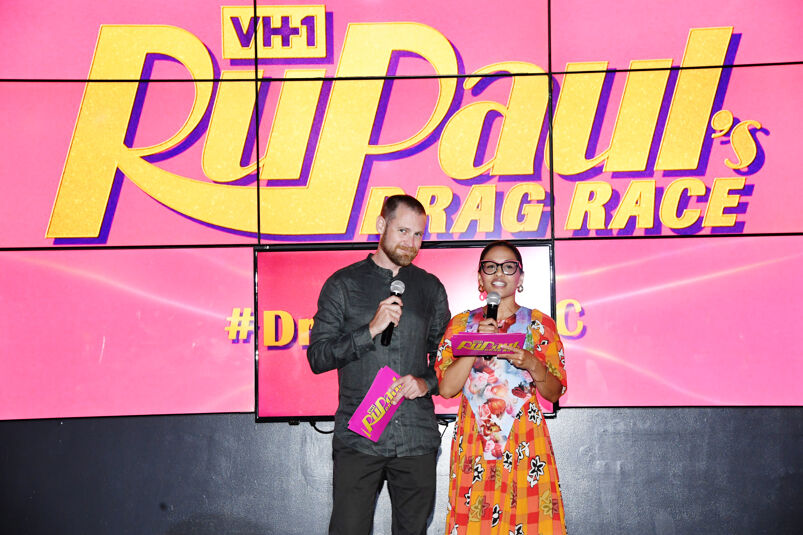
Is there a reality show or guilty pleasure that you do watch? Or do you avoid reality TV?
Generally I avoid most of it but one that I absolutely love is called Alone [on the History Channel]. There’s a game component, but it is also documentary style with a serious survival component as contestants get dropped off in the wilderness. I freaking love that show. But as of late, Melissa has got me watching The Traitors and she and I would love to be on it.
And we’d love to see it!
For more information on how to get involved with History UnErased, including how to donate and host a fundraiser, go to Unerased.org.
This interview has been edited and condensed for clarity.
Related:
‘Real World’ star Danny Roberts reflects on the legacy of Pedro Zamora: “He changed many people’s minds about living with HIV”
Today, February 29, would have been ‘Real World’ star & LGBTQ activist Pedro Zamora’s 52nd birthday.


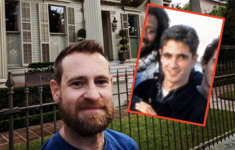

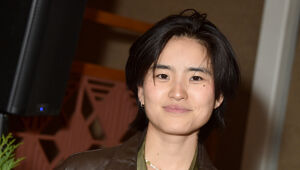
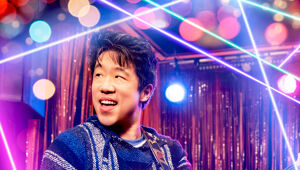
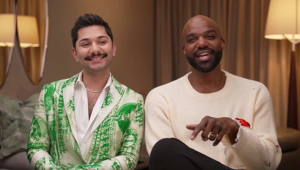
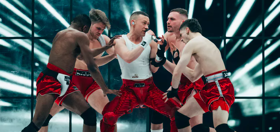

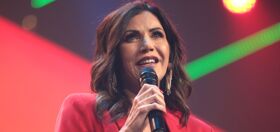
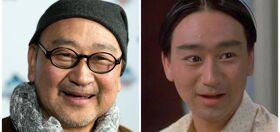
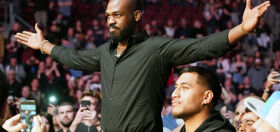
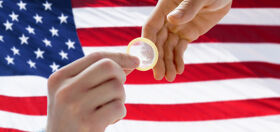
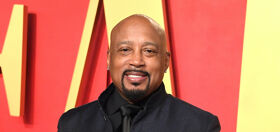
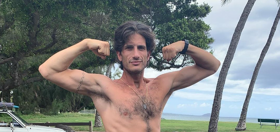
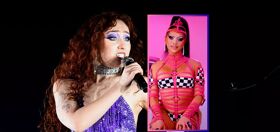

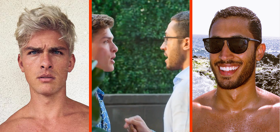
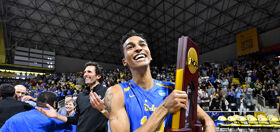
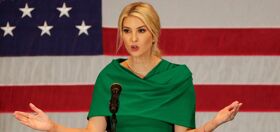
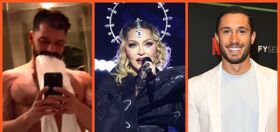
bnezzie
So incredibly inspirational that Danny has kept pushing and working towards a better place for us all. Navigating the ups and downs of a reality show at such a young age couldn’t have been easy, but sharing his story and continuing to work towards understanding and awareness truly makes him an icon on my book. Well done, sir!
Chrisk
Realworld New York and New Orleans was the only one’s I ever watched. I remember Danny having to have his BF blurred. I remember being in the military myself and watching people I knew getting kicked. Such a different era.
Chrisk
Also I find it funny that the word G-A-Y seems to be banned here now.